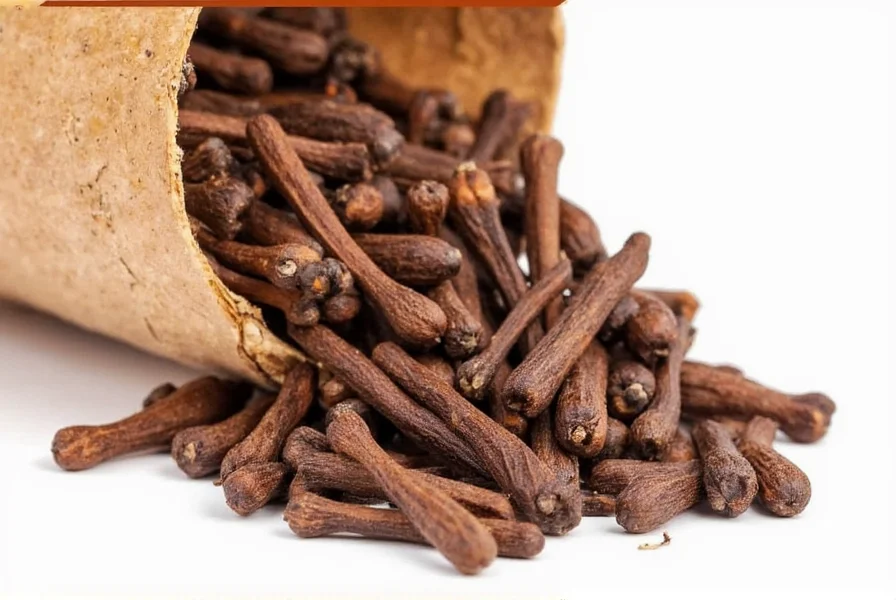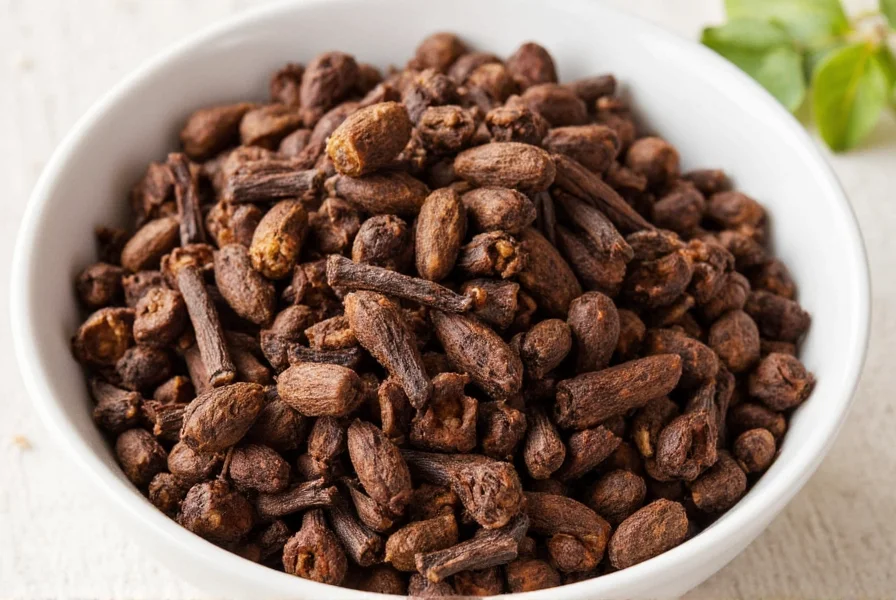When you choose organic cloves, you're selecting a spice cultivated through methods that protect both your health and the environment. Unlike conventionally grown cloves that may contain pesticide residues, organic varieties undergo rigorous certification processes to ensure they meet specific agricultural standards focused on sustainability and purity.
What Defines True Organic Cloves
The term "organic" for cloves isn't just marketing—it represents a comprehensive farming approach verified by certification bodies like USDA Organic, EU Organic, or India Organic. These certifications require:
- Minimum three-year transition period from conventional to organic farming
- Prohibition of synthetic pesticides and fertilizers
- No genetically modified organisms at any stage
- Soil conservation practices that maintain ecosystem health
- Regular third-party inspections of farming operations
| Characteristic | Organic Cloves | Conventional Cloves |
|---|---|---|
| Pesticide Use | Natural pest control methods only | Synthetic pesticides permitted |
| Fertilization | Compost, manure, green manure | Synthetic fertilizers common |
| GMOs | Strictly prohibited | Not regulated |
| Soil Management | Required crop rotation, cover crops | No specific requirements |
| Certification | Annual inspections, documentation | No certification needed |
Nutritional Advantages of Organic Cloves
Research suggests organic spices often contain higher concentrations of beneficial compounds. Organic cloves typically deliver:
Eugenol, the primary active compound in cloves, appears in higher concentrations in organically grown varieties—up to 15% more according to agricultural studies comparing farming methods. This potent antioxidant provides the characteristic clove aroma while offering significant health benefits. Organic cultivation methods preserve soil microbiology, which enhances the plant's natural defense mechanisms and increases phytochemical production.
When examining the nutritional value of organic cloves versus conventional options, the differences extend beyond just eugenol content. Organically grown cloves consistently show higher levels of:
- Vitamin K (essential for blood clotting and bone health)
- Manganese (critical for metabolism and bone formation)
- Dietary fiber (supports digestive health)
- Antioxidant capacity (measured by ORAC values)
Practical Uses for Organic Cloves in Daily Life
Understanding how to use organic cloves effectively maximizes their benefits. The most common applications include:
Culinary Applications
Organic cloves add distinctive flavor to both sweet and savory dishes. Their intense aroma means a little goes a long way—typically just 1-2 whole cloves per recipe. For baking, grind organic cloves fresh to release maximum flavor in gingerbread, pumpkin pie, or spiced cookies. In savory cooking, add whole organic cloves to rice dishes, curries, and braised meats, removing them before serving.
Natural Remedies
For temporary toothache relief, place a single organic clove directly on the affected area—the eugenol acts as a natural anesthetic. To create a soothing sore throat gargle, steep 3-4 organic cloves in hot water for 10 minutes, then strain and use when cooled. Many herbalists recommend organic cloves in homemade cough syrups due to their antimicrobial properties.
Environmental Impact of Organic Clove Farming
Choosing organic cloves supports agricultural practices that benefit ecosystems. Conventional clove farming often relies on monoculture techniques that deplete soil nutrients and require increasing chemical inputs. Organic clove farms typically integrate spice trees with other crops in agroforestry systems that:
- Maintain soil structure and prevent erosion
- Support biodiversity through companion planting
- Reduce water contamination from agricultural runoff
- Promote carbon sequestration in healthy soils
- Provide better working conditions for farm laborers
Studies of organic spice farming in Indonesia, the world's largest clove producer, show these methods increase farm biodiversity by up to 30% while maintaining comparable yields after the initial transition period. The elimination of synthetic pesticides particularly benefits pollinator populations essential for ecosystem health.
Selecting and Storing Organic Cloves
When purchasing organic cloves, look for these quality indicators:
- Deep brown color with no signs of fading
- Intact buds with visible oil glands
- Strong, spicy aroma when crushed
- Visible certification seal from recognized organic program
Proper storage preserves the volatile oils that give organic cloves their distinctive flavor and health benefits. Keep them in an airtight container away from light and heat. Whole organic cloves maintain peak quality for 1-2 years when stored properly, while ground cloves lose potency within 6 months. For maximum freshness, buy whole organic cloves and grind them as needed using a dedicated spice grinder.

Addressing Common Questions About Organic Cloves
Are organic cloves significantly more expensive than conventional cloves?
Organic cloves typically cost 20-40% more than conventional varieties due to the labor-intensive farming practices and certification requirements. However, because you need less organic clove for the same flavor impact (due to higher essential oil content), the actual cost per use is often comparable.
Can I grow organic cloves at home?
Cloves require tropical conditions (USDA zones 10-12) with high humidity and consistent warmth to thrive. While you can grow clove trees from organic seeds in suitable climates, they take 6-8 years to produce harvestable buds. Most home gardeners in temperate regions cannot successfully grow clove trees outdoors.
Do organic cloves have stronger medicinal properties?
Studies indicate organic cloves contain higher concentrations of eugenol and other beneficial compounds. The absence of synthetic pesticides means you avoid ingesting potential chemical residues, making organic cloves preferable for medicinal applications where purity matters.
How can I verify if cloves are truly organic?
Look for official certification seals from recognized programs like USDA Organic, EU Organic, or India Organic. Reputable sellers provide batch-specific certification documentation. You can verify certifications through the issuing organization's website. Be wary of products claiming "natural" or "pesticide-free" without official organic certification.
Are organic cloves better for the environment than conventional ones?
Yes, organic clove farming eliminates synthetic pesticide runoff that contaminates waterways, promotes soil health through natural methods, supports greater biodiversity, and typically uses less energy-intensive production methods. The prohibition of synthetic fertilizers also reduces greenhouse gas emissions associated with their production and application.











 浙公网安备
33010002000092号
浙公网安备
33010002000092号 浙B2-20120091-4
浙B2-20120091-4